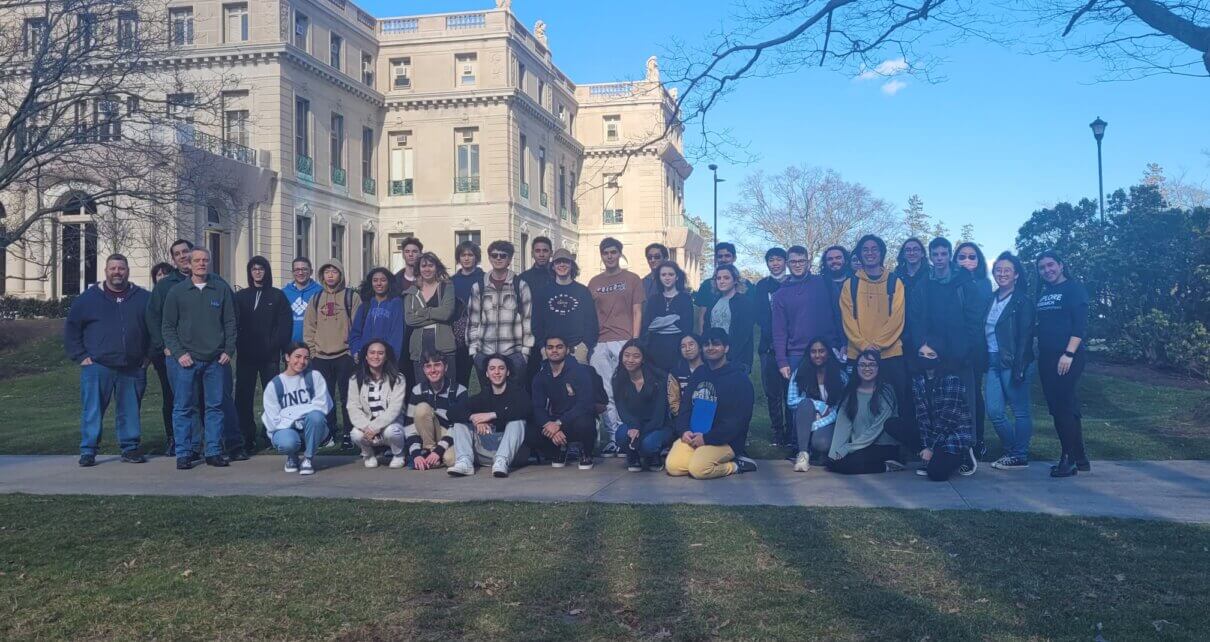Monmouth University’s Computer Science and Software Engineering (CSSE) Department and Institute of Electrical and Electronics Engineers (IEEE) club co-hosted their annual HawkHack, also referred to as the High School Programming Competition, on Friday, Feb. 24.
In preparation for the competition, CSSE and IEEE reached out to local high schools that offer AP Computer Science courses (A, B, and Principles), encouraging those students to get hands-on code experience and network with aspiring professionals in the field.
This year’s event garnered participation from six schools for a total of 36 participants. Students were broken up into teams of two to three and were allotted 90 minutes to complete three separate coding tasks utilizing HackerRank.com, a website designed for group coding competitions.
CSSE and IEEE have not held their annual competition since its fifth one during the spring of 2020. Rolf Kamp, Specialist Professor for the CSSE Department and IEEE advisor, said, “It was good to see that after a three-year hiatus, Monmouth University’s computer club sprang back into action and put together a program with such magnitude.”
The three-year gap allowed for a whole new cohort of students to join the competition, as most students eligible in the last competition have already graduated high school. Out of the 11 competing teams, the first place winner was from East Brunswick, and the second and third place winners from Freehold.
Fifteen CSSE students helped run the event. Vincent Tuberion, a sophomore computer science student and tutor, recalled his experience as a 2020 participant and how it helped him on the path to college. “I had the privilege of going to a high school (Red Bank Regional) that offered an Information Technology program…. The biggest impact was being able to go to the University, sit in the same classroom as college students, and do exactly what I’ve wanted to do moving forward into college and beyond, programming,” he said.
Tuberion’s time at the competition contributed to his decision to attend Monmouth. He said, “Though we didn’t win the competition that year, being a part of it was a significant part of my decision process in attending Monmouth in the first place. It meant a lot to me to be a part of the 2023 competition volunteers for this reason, to be able to return the favor and give other high school students the same experience.”
According to Tuberion, events like the High School Programming Contest help promote the University to prospective students. “General campus tours don’t have as much of an effect as being able to see what it is that one is majoring in and be able to practice it in a college setting while still finishing high school,” he added.
The students competed in a variety of tasks, such as detecting palindromes, which manipulates strings; bill division, which asked the students to manipulate arrays; and cylinder stacks, finding equilibrium within abstract arrays. All programming tasks were selected by Jordan Strobing, a senior computer science student, and evaluated before the competition to ensure solvability and to assess grade level.
Tuberion emphasized, “Having a technology experience in high school, on top of working on personal projects in game development, put me at a significant head start moving into college. The competition shows the importance of team planning and coordination, which is valuable in the actual field, where developers often work in two-week sprints with meetings to decide on how best to tackle the project.
Participating in the 2020 competition as a high school student, then volunteering as a college student has been a wonderful experience overall.”



